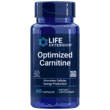 Home > Brands > F - L > Life Extension > Life Extension I L I > Liquid Vitamin D3 2,000 IU 1 fl. oz. (29.57 ml)
Home > Brands > F - L > Life Extension > Life Extension I L I > Liquid Vitamin D3 2,000 IU 1 fl. oz. (29.57 ml)
Vitamin D3 can be synthesized by humans in the skin upon exposure to ultraviolet-B (UVB) radiation from sunlight. But, due to the winter season, weather conditions, and sun screen usage, the body’s ability to produce optimal vitamin D levels may be inhibited.1 These factors point to the value of taking a daily vitamin D supplement.
Vitamin D has long provided significant support for healthy bone density.2-7 However, scientists have also validated the critical role that vitamin D plays in regulating healthy cell division and differentiation, and its profound effects on human immunity.8-15 These findings link a deficiency of vitamin D to a host of common age-related problems.
The current RDA is only 600 IU. As a result of evidence of widespread vitamin D deficiency, prominent nutritional scientists are calling on Americans to increase their vitamin D intake to 1,000 IU per day and higher. Life Extension suggests that healthy adults supplement each day with at least 2,000 IU of vitamin D. Elderly adults may benefit from higher doses. The objective of taking a vitamin D supplement is to achieve an optimal 25-hydroxy vitamin D blood level of 50 ng/mL (or higher).
Vitamin D in the amount of 2,000 IU is contained in the multinutrient Life Extension Mix™ and the multivitamin Two-Per-Day Tablets. A vitamin D blood test can help you determine the additional amount of vitamin D you may need to supplement to achieve an optimal level.
Natural mint flavor has been added to Life Extension's Liquid Vitamin D3 for improved palatability.
Serving Size 1 drop | |
Servings Per Container about 1,153 | |
| Amount Per Serving | |
Vitamin D3 (as Cholecalciferol) |
2000 IU |
Other ingredients: medium chain triglycerides oil, peppermint essential oil. | |
- Take one drop once or twice daily with food, or as recommended by a healthcare practitioner.
The number of drops may vary based on temperature and altitude.
Individuals consuming more than 2,000 IU/day of vitamin D (from diet and supplements) should periodically obtain a serum 25-hydroxy vitamin D measurement. Do not exceed 10,000 IU per day unless recommended by your doctor. Vitamin D supplementation is not recommended for individuals with high blood calcium levels.
- KEEP OUT OF REACH OF CHILDREN
- DO NOT EXCEED RECOMMENDED DOSE
- Do not purchase if outer seal is broken or damaged.
- When using nutritional supplements, please consult with your physician if you are undergoing treatment for a medical condition or if you are pregnant or lactating.
These statements have not been evaluated by the Food and Drug Administration. These product are not intended to diagnose, treat, cure or prevent any disease. Copyright 2021 MyHealth-Store.com












&pc=le-01732&pim=https://s.turbifycdn.com/aah/yhst-44410109945617/liquid-vitamin-d3-2-000-iu-1-fl-oz-29-57-ml-item-01732-74.gif&pp=16.8)